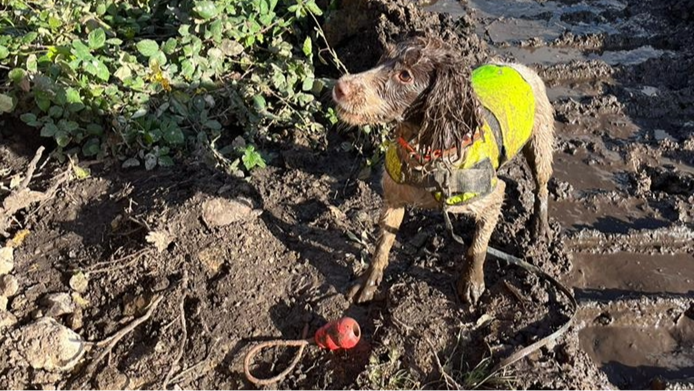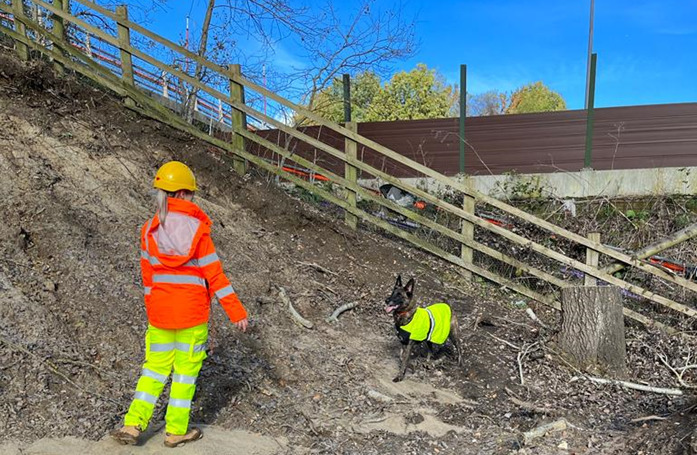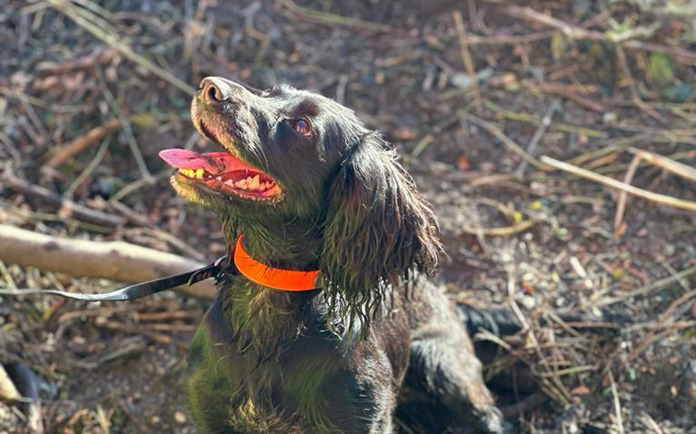
National Highways has recruited three ’dog-tectives’ to help it tackle invasive Japanese knotweed on the M25 junction 10 upgrade.
Fenix the Dutch Shepherd and Spaniels Nica and Nettle are specially trained sniffer dogs that can detect rhizomes – the underground parts of the plant such as roots, bulbs and shoots. When removed, it prevents any spread or regrowth.
When the dogs detect Japanese knotweed, they freeze to alert their handler. Each dog can only be worked for 30 minutes before resting for at least the same time to keep efficiency levels up.
Japanese knotweed is known for its aggressive growth and resilience. It can shoot to over 2.1m high, suppressing all other plant growth.
If not found and dealt with, the plant can cause serious problems to buildings and structures. It’s also an offence under the Wildlife and Countryside Act 1981 to allow these invasive plant species to spread in the wild, which is why National Highways called in the canine specialists to help deal with the issue.

A four-legged investigation
All three dogs successfully found several areas where rhizomes were located underground. These areas would have been missed until the next season when the plant would have sprouted.
Japanese knotweed can lay dormant for up to 20 years. Using detection dogs allowed for a full site clearance, regardless of the state of the plant.

Environment lead on National Highways’ M25 J10 improvement scheme, Pippa Jordan, said: “Conservation plays an important role in our construction projects. Before we start, we create a map of the area which shows nearby plant species allowing us to tackle any invasive species growing on the construction site.
“In this case, we decided to put our paws on the pavement and take a unique approach to tackling the Japanese knotweed. These sniffer dogs are not only adorable, but also incredibly skilled at detecting the presence of unwanted plants, especially those not readily visible.”











